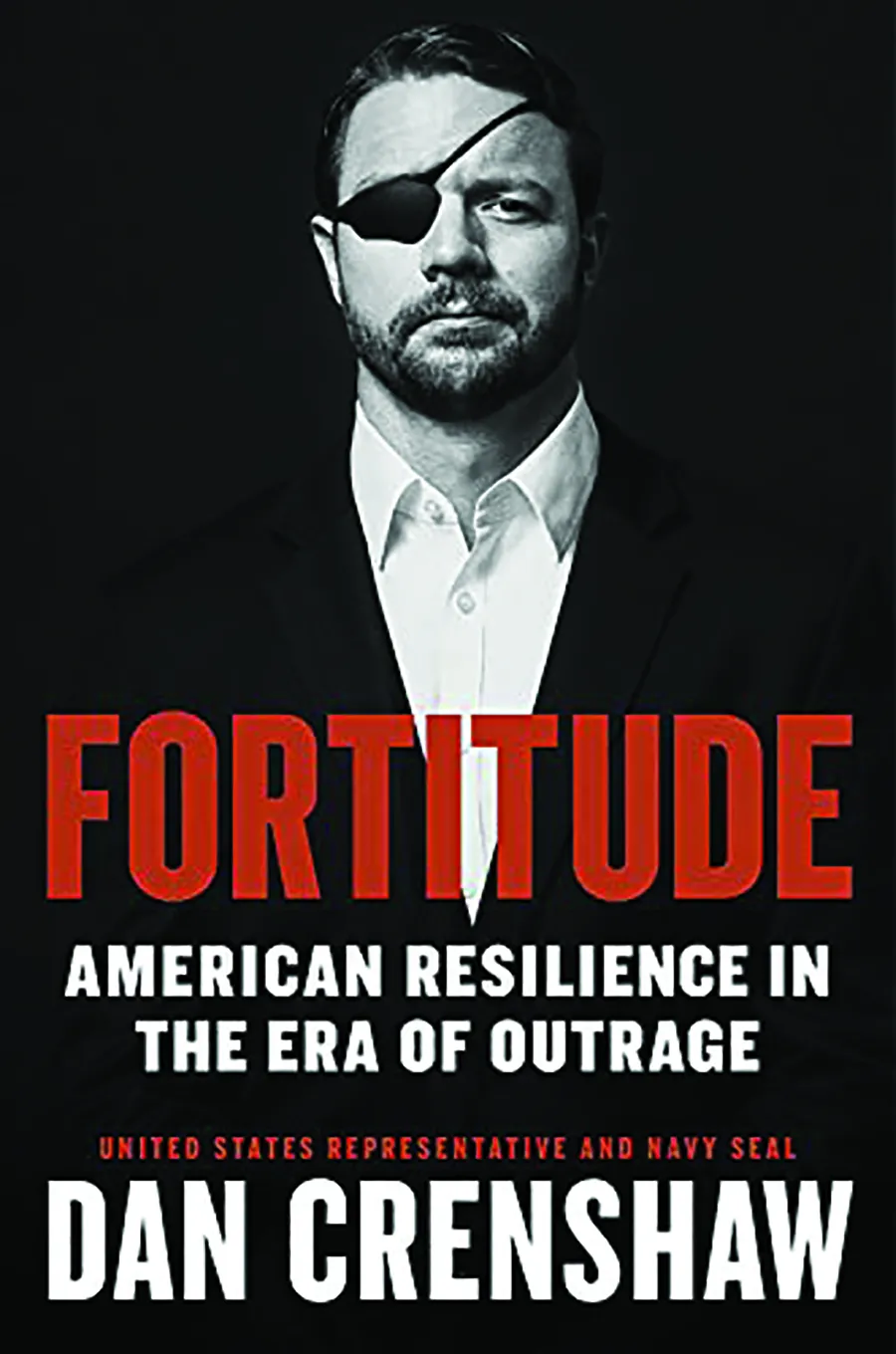During his first term in Congress, Dan Crenshaw has already become a respected spokesman for conservative ideas. A former Navy SEAL who lost his eye to an improvised explosive device in Afghanistan, he was the surprise winner of the Republican primary against better-known and better-funded opponents in Texas’s 2nd Congressional District in 2018. In the general election, he held the district for Republicans in a Democratic wave year.
Lots of politicians can spout talking points, but Crenshaw is good on his feet, a calm and persuasive rhetorician. In an age of unseriousness in Congress, where members become better-known for social media clapbacks than for thoughtful discussion, the Texas freshman’s voice is welcome.

In his new book, Fortitude: American Resilience in the Era of Outrage, Crenshaw shows exactly why he is a rising star in the Republican firmament. Part war memoir, part treatise, and part self-help book, Fortitude lays out the case against the permanent state of outrage that obsesses many on the Left and the Right. In its place, Crenshaw urges a return to the old-fashioned American values of stoicism, persistence, and perseverance. They are, in his telling, the ideals that made Crenshaw what he is today — and that built the United States.
Crenshaw sees in the rise of outrage culture “the weaponization of emotion, and the elevation of emotion over reason.” The incident that catapulted him to national fame serves as an example. While campaigning for office, Crenshaw’s picture appeared in a segment of Saturday Night Live’s Weekend Update sketch. Comedian Pete Davidson joked about his appearance, specifically his eye patch, saying that Crenshaw looked like “a hit man in a porno.” In an ad-libbed aside, Davidson said, “I’m sorry. I know he lost his eye in a war or whatever.”
Making light of a Navy SEAL’s injuries could have been the perfect grist for the outrage mill. America’s fighting men and women are held in high esteem across nearly all segments of our society, and mocking their sacrifice is one of the few things that can spur even phlegmatic viewers to anger. Few would have blamed Crenshaw for taking offense. Instead, he reacted like a responsible adult. He answered the cheap shot with grace. He appeared on SNL the next week in a segment that poked the same sort of fun at Davidson, who had earlier apologized privately for the jab. After the jokes, Crenshaw delivered a message in support of veterans, turning the negative experience into a positive.
Cancel culture demands inhuman perfection from all of us. It is not enough to be good at what you do: Now, we all must do everything correctly all of the time according to an ever-shifting set of standards. It is a byproduct of the social media world that encourages us to “share” every aspect of our lives in a public therapy session. Living performatively can be a rush when the mob approves, but one misstep, and they are liable to tear you apart. Forgiveness is rarely asked for — and never granted.
A spirit of calmness, a throwback to the ancient philosophy of stoicism, is at the heart of Crenshaw’s book. He cites the work of the stoic most familiar to modern readers, the Roman Emperor Marcus Aurelius, whose Meditations explains the philosophy that served as Aurelius’s touchstone. Meditations remains the best and most popular stoic work today, and for good reason. It teaches one to have a well-ordered mind, which translates, then and now, into a plan for a well-ordered life. The mental aspects of Crenshaw’s SEAL training overlap considerably with Aurelius’s stoicism. That makes sense: Our minds are unchanged from ancient times, even if we live in considerably different environments.
Stoicism is also a fitting philosophy for the modern age, in which individualism often triumphs over virtue. Previous ancient philosophies for virtuous living, such as Aristotelianism, said that correct action was dictated by a person’s role in the community. Stoicism internalized that struggle, encouraging personal reflection about how to live in a community without shared values. That is the experience of many cultural conservatives in the modern West. While an individual search for values is more challenging than adhering to a community standard, it may be the only path left to us. When public virtue fades, stoics preserve it in private.
The West is currently emerging from a long period in which public discourse was dominated by reason. Rationalism is now in retreat, and the voices calling for emotionalism are growing louder. Advocates of the former theory once claimed it was the truth. Now, people speak of “my truth” and the primacy of “lived experience.” People have always been influenced by their feelings, of course, and the dichotomy between reason and emotion is not as stark as the ancients believed. But the new emotionalism would have us ignore reason altogether and return to a primal life in which we are ruled by volatile tempers.
Against this, Crenshaw does not propose a life of pure, unfeeling reason. He says that it is good, at times, to complain, to laugh, to feel. But he also knows what our Founding Fathers knew: We must govern ourselves individually before we can govern ourselves as a nation. A capricious people ruled by emotion cannot handle liberty and will inevitably descend into mere libertinism. Through emotional strength and logical rigor — through fortitude, in short — we can improve ourselves and our society. Crenshaw’s book gives us a fair guide to achieving this, told through the engaging life story of one of conservatism’s rising stars.
Kyle Sammin is a lawyer and writer from Pennsylvania and the co-host of the Conservative Minds podcast. Follow him on Twitter at @KyleSammin.
